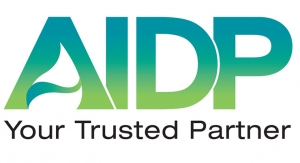By Sean Moloughney, Editor12.06.18
At every stage of life, from pregnancy and early childhood through the senior years, proper delivery of essential nutrients coupled with healthy lifestyle habits are critical to cognitive development and function.
The market for nutraceuticals targeting brain health and cognition has seen strong interest from a range of demographic groups. Baby boomers and seniors intent on staying mentally sharp with age, as well as millennials and middle-age consumers looking to manage hectic, stressful lifestyles are all buying into the idea that natural nutritional products can help meet their needs.
Demand Across the Lifespan
Research has indicated nutrition plays an important role in brain development from conception to 3 years of age. For adults, the average human brain weighs about 3 pounds, yet it uses around 20% of the body’s energy—more than any other organ. Supplying proper nutrients to fuel the brain, and the rest of the body, has scientific support.
Meanwhile, Alzheimer’s disease is a progressive neurodegenerative disorder characterized by memory loss, cognitive decline, and behavioral changes. Nearly 50 million people are living with the disease worldwide. That number is expected to triple by the year 2050. The potential societal and economic/healthcare costs of dementia are profound. Prevention, therefore, is a critical strategy, and research indicates diet/nutrition and lifestyle have a role to play.
“The aging population is undoubtedly an important demographic group when it comes to brain health messages,” said Loukiana Chatzinasiou, product manager, U.K.-based Sibelius Natural Products. “Over the next few years, the number of older people aged 65 and above will increase dramatically, as will the incidence of mental health disorders and dementia. With limited cognitive therapeutic options available, older subjects are expected to continue using dietary supplements instead of prescription medicines.”
Samantha Ford, business development director, AIDP, City of Industry, CA, agreed that an aging population is a major market driver. “More people are living longer, staying engaged in their careers longer, and even embarking on second careers, which may include going back to school.”
Millennials and even consumers aged 18-25 are also up-and-coming target groups for brain health products, according to Ms. Chatzinasiou, as young people are determined to find ways to maximize their performance, improve alertness, and reduce stress. “Ultimately, people of all ages can benefit from enhanced mental performance and focus, while trying to balance their work or studies, family, and other responsibilities.”
Alongside age, modern, competitive lifestyles are key motivators driving development of innovative brain health products, she added. “Multitasking, tight deadlines, longer working hours, and less sleep are only a few examples of our daily habits that significantly affect our brain health. With cognition being one of the most important public health concerns, a multitude of relevant product categories have been recently introduced in the market, providing diverse cognitive benefits. These include dietary supplements for enhanced mental performance, memory, concentration, focus, energy levels, sleep, stress, depression and age-related cognitive deficits.”
Ms. Ford noted the brain begins to lose elasticity, and therefore optimal function, as early as 25 years old. “With today’s busy lifestyles, younger and middle aged adults may often feel the effects of cognitive dysfunction from long days, stress, and lack of quality sleep.”
Younger consumers are looking for products that help them focus and stay attentive, noted Elyse Lovett, marketing manager, Kyowa Hakko, New York, NY. “Comprehensive, condition-specific formulas that provide multiple benefits marketed to a specific group are performing well in the marketplace,” she added.
Consumers are concerned about “staying mentally sharp,” noted Kim Colletti, global cognition product manager, Kemin Human Nutrition and Health, Des Moines, IA. “They also realize that in many areas of mental performance including focus, they may not be performing as well as they used to during their work day and in their workout. In fact, research suggests that for several domains of cognition, peak performance likely occurs as early as our 20s. Hence, a more natural and gradual approach, rather than a quick fix, may be more important for consumers looking for trusted solutions.”
With around 86 billion neurons and trillions of connections, a proper diet is essential for a healthy brain, according to Brenda Fonseca, global cognition technical services manager at Kemin. “It is well established that diets rich in fruits and vegetables support brain health. Furthermore, high fruit and vegetable intakes (five daily portions) have also been shown to support better cognitive scores (Journal of Alzheimer’s Disease, 2009). Research also indicates that these positive effects on cognitive health and performance from diets rich in fruits and vegetables may be attributed to bioactive phytonutrients.”
Stéphanie Pretesacque, global category director, consumer health, France-based Diana Food, noted that research continues to evolve in the field of cognition. “And that’s good because we know it’s a major concern for consumers. Historically, I think we all believed that brain health was simply for seniors, but more and more we understand that all age groups are concerned with maintaining good brain health.”
At a fundamental level, fear of dementia is a prime motivator for many consumers, according to Deanne Dolnick, science director, TR Nutritionals, Alpharetta, GA. “It seems that virtually everybody today knows somebody that is suffering from some form of dementia, and it is a dreadful experience to have to watch a loved one with this disease. Clearly the brain health category is aimed at those who are older, but it seems this one matters to most demographics. Cognitive decline does not discriminate.”
Expecting Results
The bottom line is that consumers expect results from products they buy. Brands need to demonstrate quality and efficacy through scientific research. “Importantly, consumers expect to feel a difference when taking a product, especially when it comes to cognitive health,” said AIDP’s Ms. Ford.
Kyowa’s Ms. Lovett said the typical supplement user always “expects” to feel something from their supplement choices, but it can be difficult to show immediate effects with brain health ingredients. “Formulating with multiple ingredients so consumers get both immediate and long term benefits is key.”
According to Sibelius’ Ms. Chatzinasiou, consumers are continually looking for natural alternatives to expensive prescription drugs, as well as convenient and appealing delivery formats they can incorporate into their daily routines. They are also demanding greater transparency from brands as well as clean label supplements.
Savvy consumers want to know more about the foods and ingredients they put into their bodies, noted Stacy Dill, global director of marketing at Kemin. “There has been an increasing demand for transparency, detailing out the seed to shelf story. And we at Kemin are encouraged by this consumer movement because it allows us to highlight what we have always done in focusing on quality, safety, and science.”
Ultimately, the evolution of clinical research and understanding how natural products work will help to build trust among consumers who are already gravitating toward “naturality,” said Diana Food’s Ms. Pretesacque. “Trust is dear to Diana, it’s our DNA. Trust that the product is safe and that it will deliver the claimed benefit—that’s what we want to be known for. We say what we do and we do what we say.”
Transparency is an important aspect of trust, she added. “The way we provide transparency is by controlling everything from the field, including planting of seeds. “We have a team of agronomists in the field who work with farmers to make sure the right varieties are grown and with the right agricultural practices.” Transparency also means sound research is published in peer-reviewed journals, she added.
Ingredients & Research
Nutrients like long-chain polyunsaturated fatty acids (PUFAs) such as docosohexaenoic acid (DHA), folic acid, and choline are essential to proper fetal development, yet are often under-consumed.
According to an article published in the Journal of Pediatrics in 2016, gestational and early postnatal PUFA supplementation has been associated with improved cognition and attention. Data has shown DHA is necessary for neurogenesis and neuronal migration, membrane fatty acid composition and fluidity, and synaptogenesis. PUFAs have a profound effect on monoaminergic, cholinergic, and GABA-ergic neurotransmitter systems. They also modify the epigenetic landscape of the brain, conferring potential long-term effects.
A study published in Nutrients in 2018 showed that higher blood levels of the long-chain omega-3s EPA (eicosapentaenoic acid) and DHA are associated with cognitive benefits in older adults as well.
In this study, researchers from the Boston Puerto Rican Health Study examined the prospective associations of omega-3 and omega-6 levels in red blood cells (RBCs) with measures of cognitive function in subjects who had an average age of 57.
Both omega-3 and omega-6 levels were measured using proprietary methods from OmegaQuant at baseline. During a two-year period, researchers had 1,032 subjects take the Mini-Mental State Exam (MMSE), while 865 subjects took other tests related to cognitive function. Changes in scores were assessed and correlated with the subjects’ omega-3 and 6 levels.
Omega-3 blood levels were not significantly associated with changes in MMSE score, but they were linked with better executive function, a facet of cognitive function that allows people to plan, organize, and complete tasks.
Interestingly, blood levels of the long-chain omega-6 fatty acid, arachidonic acid, were associated with a 26% increased risk for developing cognitive impairment over two years of observation.
“The results of this study add to the growing body of evidence correlating blood levels of omega-3s to cognitive function,” said Bill Harris, PhD, CEO, OmegaQuant, and one of the study’s authors. “But perhaps more significant, studies like this show the importance of measuring blood levels of omega-3s as part of a study’s protocol. Hopefully this becomes the standard for all omega-3 studies moving forward.”
Epidemiological studies suggest that choline protects against neural tube defects and may enhance childhood cognition. Clinical trials have found that choline supplementation improves stress adaptation in the developing fetus. Neural tube defects, including spina bifida and anencephaly, are thought to occur when there is a deficiency of folic acid in the early stages of pregnancy.
In a policy statement issued in early 2018, the American Academy of Pediatrics identified choline as one of several key “brain building” nutrients that are critical to early childhood development.
“Choline is vital to fetal and early childhood brain development, but most pregnant and nursing mothers are not getting anywhere near the current recommended amounts of this essential nutrient in their diets,” noted Tom Druke, director of VitaCholine brand development, Balchem Human Nutrition and Pharma, New Hampton, NY. “Extensive research by the U.S. Centers for Disease Control determined that an alarming 90% of U.S. adults are not getting recommended levels of choline. Obviously, all parents want their babies to have healthy, well-functioning brains, so it’s important that this information be conveyed to the public.”
Authors of a 2017 study published in the journal Nutrients reported that only 8% of pregnant women are consuming the levels of choline that research says they should be getting, he added.
“Last year the American Medical Association responded to this and additional research by recommending that evidence-based amounts of choline be included in all prenatal vitamins. This matters because research showed that only eight of the top 25 prenatal vitamins contained any choline, and none of them included enough. Just 12% of the Dietary Reference Intake (DRI) for pregnant women was included in those eight formulas, at 55 mg per daily dose, when the daily intake should be 450 mg.”
The body of research identifying the benefits of higher amounts of choline during specific life stages, particularly during the first 1,000 days of life, is growing, according to Mr. Druke. “A recent clinical study at Cornell University found a correlation between increased choline intake during pregnancy and improved information processing speed in infants (FASEB Journal, 2017).
Epidemiological studies indicate a relationship between maternal choline intake and a child’s longer-term cognitive performance.
Choline functions as a precursor to the essential neurotransmitter acetylcholine. “Think of it as the brain’s ‘instant messenger,’ speeding messages through the brain to the muscles and the entire body. Adequate intake of choline for young, active children continues to be of great consequence, since research has made it clear that our bodies will sacrifice cell membrane phospholipids in the absence of adequate dietary choline, potentially leading to breakdown of muscle tissue in cases of prolonged inadequacy.”
For adult consumers, there’s a wide variety of products on the market designed to provide benefits associated with memory, mood, attention and focus, sleep and anxiety, said Ms. Chatzinasiou of Sibelius.
She pointed to B-complex vitamins, magnesium, DHA, Huperzine A, 5-HTP, and herbal extracts such as ginkgo biloba, ashwagandha, hemp, and sage. “In addition, the use of innovative delivery forms is rapidly expanding, with consumers trying to move away from the traditional pill or capsule supplement formats to more convenient and appealing options, such as gummies, powders, and drinks.”
Given the growing interest in cognitive health and complementary/alternative medicine, more emphasis is being placed on science, according to AIDP’s Ms. Ford. “Magtein, AIDP’s patented magnesium L threonate, is backed by unique clinical evidence demonstrating its benefits in areas of memory, attention, and stress. In addition, Magtein is being investigated in seven ongoing clinical trials, including areas of mood and anxiety.”
AIDP also recently added BacoMind to its portfolio of cognitive health ingredients. “BacoMind is a patented, full-spectrum extract of Bacopa monnieri that is clinically tested for enhancing memory and cognition,” said Ms. Ford. “A 12-week randomized, double blind, placebo-controlled trial demonstrated effectiveness of BacoMind in memory acquisition and retention among adults (Journal of Alternative and Complementary Medicine, 2010).”
Ms. Dolnick said TR Nutritionals is one of the largest suppliers of ginkgo biloba extract, which continues to be a top product in the brain health category. “We are also getting far more inquiries and selling more Bacopa monnieri extract than ever before for this category.”
Kyowa Hakko’s Cognizin, a branded form of citicoline, is one of the leading ingredients in the market for brain health solutions, according to Ms. Lovett. “Cognizin is the only citicoline studied in healthy subjects. Various demographic studies have shown that Cognizin helps support focus, attention, and brain energy. Not only does Cognizin have multiple studies backing its efficacy, it is made by a patented fermentation process to yield high quality and purity. Cognizin is Generally Recognized As Safe (GRAS), stable, and soluble, making it ideal for many different delivery forms, including dietary supplements as well as food and beverage applications.”
Diana Food recently launched Cerebelle, a proprietary blend of extracts made from two potent polyphenol-rich fruits—grape and wild blueberry—clinically shown to prevent age-related cognitive decline in healthy older adults. The bioavailability of the two components was studied with consistent results showing the combination of the ingredients increased specific flavonoid bioavailability. Grape and wild blueberry extracts contain specific polyphenols with neuroprotective properties.
A clinical study published in the Journals of Gerontology by researchers from the Canada-based Institute of Nutrition and Functional Foods and the University of Bordeaux in France, showed that six-month supplementation with Cerebelle improved memory in healthy older adults. In a bicentric, randomized, double-blind, placebo-controlled study, 215 healthy subjects from 60 to 70 years of age received either a placebo or 600 mg/d of Cerebelle for 24 weeks. Subjects in both groups performed a series of cognitive tests to assess visiospatial learning and episodic memory (Paired Associate Learning, PAL), verbal epidsodic and recognition memory (VRM), and working memory (SSP). Supplementation with Cerebelle improved VRM free recall across the whole cohort.
It was further noted that within the subgroup with advanced cognitive decline at baseline, six-month supplementation with Cerebelle showed improvement of both PAL and VRM. These results suggested Cerebelle improves verbal memory in healthy elderly people. The study also demonstrated the product improves visiospatial memory, or the ability to recall previous events, emotions, and places, in healthy senior people with a lower level of memory performance.
“Preclinical data have shown that polyphenols from Cerebelle can decrease the production of pro-inflammatory compounds in the brain,” said Joyce Cascella, consumer health category manager, Diana Food. “The published preclinical study demonstrated that these polyphenols stimulate the production of nerve growth factor in the brain with an increase in synaptic plasticity, leading to an improvement of memory. These three different pathways strengthen our understanding of the capability of Cerebelle to protect against the memory decline associated with aging.”
Cerebelle illustrates the way Diana Food approaches business, noted Ms. Pretesacque, as the company controls the raw material, the extraction process, characterizes the components, and also demonstrates efficacy through clinical study. “Cerebelle is a good crystallization of what Diana is all about, especially in the field of brain health.”
Both traditional and new ingredients are leading the cognitive performance market, according to Kieron Edwards, PhD, scientific director, Sibelius Natural Products. “The trends for the newer ingredients are driven by a more focused approach to supporting brain health, such as inflammation, boosting focus, attention, and memory. While many of the traditional ingredients are utilized by older populations to counteract the negative effects of aging, younger consumers are reaching for more novel, albeit natural ingredients, to support their cognitive health.”
As consumers are discerning with what they consume, they insist on a strong efficacy story, he added. “This means that traditional use must be supported by new clinical data or preclinical data.”
CBD is an exciting newcomer to the cognitive field, according to Dr. Edwards. However, most studies to date have focused on pain, mood, or anxiety. Currently, only a handful of trials have focused on the growing area of research related to inflammation and cognitive aging.
“Chronic, low-grade inflammation is increasingly being recognized as a major risk factor in the development of many age-related chronic conditions, including reduced brain health,” he said. “A pro-inflammatory state is associated with several cognitive diseases including Alzheimer’s, and has also been correlated with poor cognitive performance in healthy older adults.”
Dr. Edwards pointed to sage, or specific species of the genus Salvia. “Multiple trials have been conducted on Salvia officinalis and lavandulifolia that demonstrate these two species have a pronounced effect on cognitive performance in healthy young adults and aging (50+) populations.”
Kemin’s FloraGLO lutein and patented spearmint extract Neumentix are both dietary ingredients that support cognitive function. “Lutein has been identified for its important role in both eye and brain health,” said Ms. Fonseca. “The connection between eye and brain tissue makes physiological sense, as well as the common potential for oxidative stress and antioxidant need. Studies indicate that lutein concentration in the eye, as measured by macular pigment optical density, is significantly correlated with lutein concentration in the brain and with cognitive function.”
Ceci Snyder, global vision product manager at Kemin, noted that four randomized, double-blind, placebo-controlled trials support the use of FloraGLO for cognitive function. “For formulators looking for strong support of brain ingredients, the new studies show how FloraGLO Lutein and R,R’-zeaxanthin support blood flow to specific brain regions, enhance neural activation, support complex attention and cognitive flexibility, and improve visual memory and reasoning ability.
Neumentix contains more than 50 lesser known yet potent phenolic constituents, including salvianolic, lithospermic, caftaric, and rosmarinic acid. “Research suggests these unique polyphenols may work through multiple ways to support cognitive function, including providing antioxidant support, promoting new neuron growth, increasing levels of acetylcholine, and protecting healthy nerve cells,” said Ms. Fonseca.
In a recent, randomized, double-blind, placebo-controlled study with 142 young, healthy and active women and men, Neumentix supplementation was shown to improve sustained attention in young, healthy adults. “These statistically significant effects compared to placebo were observed as early as 30 days following daily supplementation with 900 mg of Neumentix, and these significant improvements were still present after 90 days of supplementation,” said Ms. Colletti.
A peer-reviewed study published in Minerva Medica in 2018 showed that daily supplementation with the natural antioxidant Pycnogenol French maritime pine bark extract can be instrumental in improving the symptoms of mild cognitive impairment (MCI)—a potential risk factor for early onset dementia and other degenerative cognitive conditions.
The study tested 87 men between the ages of 55 and 70 who showed signs of MCI. Researchers administered a Mini-Mental State Examination (MMSE) 30-point questionnaire to determine the level of cognitive impairment for each individual. Participants were supplemented with 150 mg of Pycnogenol daily for eight weeks and MMSE scores were re-evaluated at the end of the study.
All study participants followed a standard management routine including healthy sleep habits, regular exercise, and low sodium and low sugar meals. Results showed that along with these standard management practices, study participants who supplemented with Pycnogenol had an 18% improvement in their MMSE scores, including improvements in the following areas: significant enhancement of ability to remember friends and family (31.3% for Pycnogenol vs. 0% control); improvement in remembering where things are (39.4% for Pycnogenol vs. 6.5% control); increase in ability to learn new gadgets and technology (24.1% for Pycnogenol vs. 3.3% control); greater ability to manage money and finances (39.4% for Pycnogenol vs. 12.5% control); and significant improvement in ability to deal with people (19.4% for Pycnogenol vs. 7.6% control). In addition, researchers found participants who supplemented with Pycnogenol experienced a 16% reduction in oxidative stress.
This study builds upon previous research supporting the benefits of Pycnogenol for cognitive health improvement. A study conducted in 2015 and published in the Journal of Neurosurgical Sciences showed that baby boomers (ages 55+) experienced increased overall cognitive performance, including for memory, attention, and daily decision-making. In addition, a 2008 study in the Journal of Psychopharmacology found that Pycnogenol helps improve numerical working memory as well as spatial memory in seniors.
Pycnogenol is a potent antioxidant shown to boost blood circulation and act as a natural anti-inflammatory. Pycnogenol helps endothelial cells produce more nitric oxide (NO), which has multiple effects on brain function. Initially, NO increases blood flow, which improves oxygenation and the transport of nutrients to brain cells. NO regulates neuronal functions and thus contributes to processing signals inside the brain. In addition, NO helps modulate key neurotransmitters such as dopamine, serotonin, and norepinephrine.
Natural Evolution
Consumer awareness regarding nutrition and preventive healthcare is expected to grow, driven by the trend toward personalized nutrition and self-motivated healthcare, said Sibelius’ Ms. Chatzinasiou. “Consumers recognize that healthcare is no longer the sole responsibility of a traditional medical care professional, nor does the one-size-fits-all model work for managing one’s health.”
Consumers seek supplements that complement their lifestyle, career, stage of life, and even genetic background. “We can anticipate that all consumers, regardless of age, will be more diligent about which supplements they choose to take, more critical of the science behind a particular supplement, and expect a higher level of transparency with regard to sourcing, manufacturing, and sustainability.”
The evolution of research and scientific understanding ultimately opens opportunities for targeted, personalized product solutions that can appeal to a range of consumers, according to Diana Food’s Ms. Pretesacque. Increased understanding of the gut-brain axis and how the gut mediates dietary components, like polyphenols for example, will also help companies develop more tailored product solutions.
Overall, there is immense and growing interest among young, healthy adults in safe and natural ingredients that have cognitive performance benefits, said Kemin’s Ms. Colletti. “While there are options that may offer a ‘quick fix,’ like caffeine, a lasting efficacious cognitive ingredient that benefits even young, healthy adults is highly desirable. Whether it’s a young professional juggling work, home and the gym, the gamer wanting a competitive edge for virtual reality play, or an athlete focusing on achieving top mental and physical performance, consumers are looking for that extra edge.”
The market for nutraceuticals targeting brain health and cognition has seen strong interest from a range of demographic groups. Baby boomers and seniors intent on staying mentally sharp with age, as well as millennials and middle-age consumers looking to manage hectic, stressful lifestyles are all buying into the idea that natural nutritional products can help meet their needs.
Demand Across the Lifespan
Research has indicated nutrition plays an important role in brain development from conception to 3 years of age. For adults, the average human brain weighs about 3 pounds, yet it uses around 20% of the body’s energy—more than any other organ. Supplying proper nutrients to fuel the brain, and the rest of the body, has scientific support.
Meanwhile, Alzheimer’s disease is a progressive neurodegenerative disorder characterized by memory loss, cognitive decline, and behavioral changes. Nearly 50 million people are living with the disease worldwide. That number is expected to triple by the year 2050. The potential societal and economic/healthcare costs of dementia are profound. Prevention, therefore, is a critical strategy, and research indicates diet/nutrition and lifestyle have a role to play.
“The aging population is undoubtedly an important demographic group when it comes to brain health messages,” said Loukiana Chatzinasiou, product manager, U.K.-based Sibelius Natural Products. “Over the next few years, the number of older people aged 65 and above will increase dramatically, as will the incidence of mental health disorders and dementia. With limited cognitive therapeutic options available, older subjects are expected to continue using dietary supplements instead of prescription medicines.”
Samantha Ford, business development director, AIDP, City of Industry, CA, agreed that an aging population is a major market driver. “More people are living longer, staying engaged in their careers longer, and even embarking on second careers, which may include going back to school.”
Millennials and even consumers aged 18-25 are also up-and-coming target groups for brain health products, according to Ms. Chatzinasiou, as young people are determined to find ways to maximize their performance, improve alertness, and reduce stress. “Ultimately, people of all ages can benefit from enhanced mental performance and focus, while trying to balance their work or studies, family, and other responsibilities.”
Alongside age, modern, competitive lifestyles are key motivators driving development of innovative brain health products, she added. “Multitasking, tight deadlines, longer working hours, and less sleep are only a few examples of our daily habits that significantly affect our brain health. With cognition being one of the most important public health concerns, a multitude of relevant product categories have been recently introduced in the market, providing diverse cognitive benefits. These include dietary supplements for enhanced mental performance, memory, concentration, focus, energy levels, sleep, stress, depression and age-related cognitive deficits.”
Ms. Ford noted the brain begins to lose elasticity, and therefore optimal function, as early as 25 years old. “With today’s busy lifestyles, younger and middle aged adults may often feel the effects of cognitive dysfunction from long days, stress, and lack of quality sleep.”
Younger consumers are looking for products that help them focus and stay attentive, noted Elyse Lovett, marketing manager, Kyowa Hakko, New York, NY. “Comprehensive, condition-specific formulas that provide multiple benefits marketed to a specific group are performing well in the marketplace,” she added.
Consumers are concerned about “staying mentally sharp,” noted Kim Colletti, global cognition product manager, Kemin Human Nutrition and Health, Des Moines, IA. “They also realize that in many areas of mental performance including focus, they may not be performing as well as they used to during their work day and in their workout. In fact, research suggests that for several domains of cognition, peak performance likely occurs as early as our 20s. Hence, a more natural and gradual approach, rather than a quick fix, may be more important for consumers looking for trusted solutions.”
With around 86 billion neurons and trillions of connections, a proper diet is essential for a healthy brain, according to Brenda Fonseca, global cognition technical services manager at Kemin. “It is well established that diets rich in fruits and vegetables support brain health. Furthermore, high fruit and vegetable intakes (five daily portions) have also been shown to support better cognitive scores (Journal of Alzheimer’s Disease, 2009). Research also indicates that these positive effects on cognitive health and performance from diets rich in fruits and vegetables may be attributed to bioactive phytonutrients.”
Stéphanie Pretesacque, global category director, consumer health, France-based Diana Food, noted that research continues to evolve in the field of cognition. “And that’s good because we know it’s a major concern for consumers. Historically, I think we all believed that brain health was simply for seniors, but more and more we understand that all age groups are concerned with maintaining good brain health.”
At a fundamental level, fear of dementia is a prime motivator for many consumers, according to Deanne Dolnick, science director, TR Nutritionals, Alpharetta, GA. “It seems that virtually everybody today knows somebody that is suffering from some form of dementia, and it is a dreadful experience to have to watch a loved one with this disease. Clearly the brain health category is aimed at those who are older, but it seems this one matters to most demographics. Cognitive decline does not discriminate.”
Expecting Results
The bottom line is that consumers expect results from products they buy. Brands need to demonstrate quality and efficacy through scientific research. “Importantly, consumers expect to feel a difference when taking a product, especially when it comes to cognitive health,” said AIDP’s Ms. Ford.
Kyowa’s Ms. Lovett said the typical supplement user always “expects” to feel something from their supplement choices, but it can be difficult to show immediate effects with brain health ingredients. “Formulating with multiple ingredients so consumers get both immediate and long term benefits is key.”
According to Sibelius’ Ms. Chatzinasiou, consumers are continually looking for natural alternatives to expensive prescription drugs, as well as convenient and appealing delivery formats they can incorporate into their daily routines. They are also demanding greater transparency from brands as well as clean label supplements.
Savvy consumers want to know more about the foods and ingredients they put into their bodies, noted Stacy Dill, global director of marketing at Kemin. “There has been an increasing demand for transparency, detailing out the seed to shelf story. And we at Kemin are encouraged by this consumer movement because it allows us to highlight what we have always done in focusing on quality, safety, and science.”
Ultimately, the evolution of clinical research and understanding how natural products work will help to build trust among consumers who are already gravitating toward “naturality,” said Diana Food’s Ms. Pretesacque. “Trust is dear to Diana, it’s our DNA. Trust that the product is safe and that it will deliver the claimed benefit—that’s what we want to be known for. We say what we do and we do what we say.”
Transparency is an important aspect of trust, she added. “The way we provide transparency is by controlling everything from the field, including planting of seeds. “We have a team of agronomists in the field who work with farmers to make sure the right varieties are grown and with the right agricultural practices.” Transparency also means sound research is published in peer-reviewed journals, she added.
Ingredients & Research
Nutrients like long-chain polyunsaturated fatty acids (PUFAs) such as docosohexaenoic acid (DHA), folic acid, and choline are essential to proper fetal development, yet are often under-consumed.
According to an article published in the Journal of Pediatrics in 2016, gestational and early postnatal PUFA supplementation has been associated with improved cognition and attention. Data has shown DHA is necessary for neurogenesis and neuronal migration, membrane fatty acid composition and fluidity, and synaptogenesis. PUFAs have a profound effect on monoaminergic, cholinergic, and GABA-ergic neurotransmitter systems. They also modify the epigenetic landscape of the brain, conferring potential long-term effects.
A study published in Nutrients in 2018 showed that higher blood levels of the long-chain omega-3s EPA (eicosapentaenoic acid) and DHA are associated with cognitive benefits in older adults as well.
In this study, researchers from the Boston Puerto Rican Health Study examined the prospective associations of omega-3 and omega-6 levels in red blood cells (RBCs) with measures of cognitive function in subjects who had an average age of 57.
Both omega-3 and omega-6 levels were measured using proprietary methods from OmegaQuant at baseline. During a two-year period, researchers had 1,032 subjects take the Mini-Mental State Exam (MMSE), while 865 subjects took other tests related to cognitive function. Changes in scores were assessed and correlated with the subjects’ omega-3 and 6 levels.
Omega-3 blood levels were not significantly associated with changes in MMSE score, but they were linked with better executive function, a facet of cognitive function that allows people to plan, organize, and complete tasks.
Interestingly, blood levels of the long-chain omega-6 fatty acid, arachidonic acid, were associated with a 26% increased risk for developing cognitive impairment over two years of observation.
“The results of this study add to the growing body of evidence correlating blood levels of omega-3s to cognitive function,” said Bill Harris, PhD, CEO, OmegaQuant, and one of the study’s authors. “But perhaps more significant, studies like this show the importance of measuring blood levels of omega-3s as part of a study’s protocol. Hopefully this becomes the standard for all omega-3 studies moving forward.”
Epidemiological studies suggest that choline protects against neural tube defects and may enhance childhood cognition. Clinical trials have found that choline supplementation improves stress adaptation in the developing fetus. Neural tube defects, including spina bifida and anencephaly, are thought to occur when there is a deficiency of folic acid in the early stages of pregnancy.
In a policy statement issued in early 2018, the American Academy of Pediatrics identified choline as one of several key “brain building” nutrients that are critical to early childhood development.
“Choline is vital to fetal and early childhood brain development, but most pregnant and nursing mothers are not getting anywhere near the current recommended amounts of this essential nutrient in their diets,” noted Tom Druke, director of VitaCholine brand development, Balchem Human Nutrition and Pharma, New Hampton, NY. “Extensive research by the U.S. Centers for Disease Control determined that an alarming 90% of U.S. adults are not getting recommended levels of choline. Obviously, all parents want their babies to have healthy, well-functioning brains, so it’s important that this information be conveyed to the public.”
Authors of a 2017 study published in the journal Nutrients reported that only 8% of pregnant women are consuming the levels of choline that research says they should be getting, he added.
“Last year the American Medical Association responded to this and additional research by recommending that evidence-based amounts of choline be included in all prenatal vitamins. This matters because research showed that only eight of the top 25 prenatal vitamins contained any choline, and none of them included enough. Just 12% of the Dietary Reference Intake (DRI) for pregnant women was included in those eight formulas, at 55 mg per daily dose, when the daily intake should be 450 mg.”
The body of research identifying the benefits of higher amounts of choline during specific life stages, particularly during the first 1,000 days of life, is growing, according to Mr. Druke. “A recent clinical study at Cornell University found a correlation between increased choline intake during pregnancy and improved information processing speed in infants (FASEB Journal, 2017).
Epidemiological studies indicate a relationship between maternal choline intake and a child’s longer-term cognitive performance.
Choline functions as a precursor to the essential neurotransmitter acetylcholine. “Think of it as the brain’s ‘instant messenger,’ speeding messages through the brain to the muscles and the entire body. Adequate intake of choline for young, active children continues to be of great consequence, since research has made it clear that our bodies will sacrifice cell membrane phospholipids in the absence of adequate dietary choline, potentially leading to breakdown of muscle tissue in cases of prolonged inadequacy.”
For adult consumers, there’s a wide variety of products on the market designed to provide benefits associated with memory, mood, attention and focus, sleep and anxiety, said Ms. Chatzinasiou of Sibelius.
She pointed to B-complex vitamins, magnesium, DHA, Huperzine A, 5-HTP, and herbal extracts such as ginkgo biloba, ashwagandha, hemp, and sage. “In addition, the use of innovative delivery forms is rapidly expanding, with consumers trying to move away from the traditional pill or capsule supplement formats to more convenient and appealing options, such as gummies, powders, and drinks.”
Given the growing interest in cognitive health and complementary/alternative medicine, more emphasis is being placed on science, according to AIDP’s Ms. Ford. “Magtein, AIDP’s patented magnesium L threonate, is backed by unique clinical evidence demonstrating its benefits in areas of memory, attention, and stress. In addition, Magtein is being investigated in seven ongoing clinical trials, including areas of mood and anxiety.”
AIDP also recently added BacoMind to its portfolio of cognitive health ingredients. “BacoMind is a patented, full-spectrum extract of Bacopa monnieri that is clinically tested for enhancing memory and cognition,” said Ms. Ford. “A 12-week randomized, double blind, placebo-controlled trial demonstrated effectiveness of BacoMind in memory acquisition and retention among adults (Journal of Alternative and Complementary Medicine, 2010).”
Ms. Dolnick said TR Nutritionals is one of the largest suppliers of ginkgo biloba extract, which continues to be a top product in the brain health category. “We are also getting far more inquiries and selling more Bacopa monnieri extract than ever before for this category.”
Kyowa Hakko’s Cognizin, a branded form of citicoline, is one of the leading ingredients in the market for brain health solutions, according to Ms. Lovett. “Cognizin is the only citicoline studied in healthy subjects. Various demographic studies have shown that Cognizin helps support focus, attention, and brain energy. Not only does Cognizin have multiple studies backing its efficacy, it is made by a patented fermentation process to yield high quality and purity. Cognizin is Generally Recognized As Safe (GRAS), stable, and soluble, making it ideal for many different delivery forms, including dietary supplements as well as food and beverage applications.”
Diana Food recently launched Cerebelle, a proprietary blend of extracts made from two potent polyphenol-rich fruits—grape and wild blueberry—clinically shown to prevent age-related cognitive decline in healthy older adults. The bioavailability of the two components was studied with consistent results showing the combination of the ingredients increased specific flavonoid bioavailability. Grape and wild blueberry extracts contain specific polyphenols with neuroprotective properties.
A clinical study published in the Journals of Gerontology by researchers from the Canada-based Institute of Nutrition and Functional Foods and the University of Bordeaux in France, showed that six-month supplementation with Cerebelle improved memory in healthy older adults. In a bicentric, randomized, double-blind, placebo-controlled study, 215 healthy subjects from 60 to 70 years of age received either a placebo or 600 mg/d of Cerebelle for 24 weeks. Subjects in both groups performed a series of cognitive tests to assess visiospatial learning and episodic memory (Paired Associate Learning, PAL), verbal epidsodic and recognition memory (VRM), and working memory (SSP). Supplementation with Cerebelle improved VRM free recall across the whole cohort.
It was further noted that within the subgroup with advanced cognitive decline at baseline, six-month supplementation with Cerebelle showed improvement of both PAL and VRM. These results suggested Cerebelle improves verbal memory in healthy elderly people. The study also demonstrated the product improves visiospatial memory, or the ability to recall previous events, emotions, and places, in healthy senior people with a lower level of memory performance.
“Preclinical data have shown that polyphenols from Cerebelle can decrease the production of pro-inflammatory compounds in the brain,” said Joyce Cascella, consumer health category manager, Diana Food. “The published preclinical study demonstrated that these polyphenols stimulate the production of nerve growth factor in the brain with an increase in synaptic plasticity, leading to an improvement of memory. These three different pathways strengthen our understanding of the capability of Cerebelle to protect against the memory decline associated with aging.”
Cerebelle illustrates the way Diana Food approaches business, noted Ms. Pretesacque, as the company controls the raw material, the extraction process, characterizes the components, and also demonstrates efficacy through clinical study. “Cerebelle is a good crystallization of what Diana is all about, especially in the field of brain health.”
Both traditional and new ingredients are leading the cognitive performance market, according to Kieron Edwards, PhD, scientific director, Sibelius Natural Products. “The trends for the newer ingredients are driven by a more focused approach to supporting brain health, such as inflammation, boosting focus, attention, and memory. While many of the traditional ingredients are utilized by older populations to counteract the negative effects of aging, younger consumers are reaching for more novel, albeit natural ingredients, to support their cognitive health.”
As consumers are discerning with what they consume, they insist on a strong efficacy story, he added. “This means that traditional use must be supported by new clinical data or preclinical data.”
CBD is an exciting newcomer to the cognitive field, according to Dr. Edwards. However, most studies to date have focused on pain, mood, or anxiety. Currently, only a handful of trials have focused on the growing area of research related to inflammation and cognitive aging.
“Chronic, low-grade inflammation is increasingly being recognized as a major risk factor in the development of many age-related chronic conditions, including reduced brain health,” he said. “A pro-inflammatory state is associated with several cognitive diseases including Alzheimer’s, and has also been correlated with poor cognitive performance in healthy older adults.”
Dr. Edwards pointed to sage, or specific species of the genus Salvia. “Multiple trials have been conducted on Salvia officinalis and lavandulifolia that demonstrate these two species have a pronounced effect on cognitive performance in healthy young adults and aging (50+) populations.”
Kemin’s FloraGLO lutein and patented spearmint extract Neumentix are both dietary ingredients that support cognitive function. “Lutein has been identified for its important role in both eye and brain health,” said Ms. Fonseca. “The connection between eye and brain tissue makes physiological sense, as well as the common potential for oxidative stress and antioxidant need. Studies indicate that lutein concentration in the eye, as measured by macular pigment optical density, is significantly correlated with lutein concentration in the brain and with cognitive function.”
Ceci Snyder, global vision product manager at Kemin, noted that four randomized, double-blind, placebo-controlled trials support the use of FloraGLO for cognitive function. “For formulators looking for strong support of brain ingredients, the new studies show how FloraGLO Lutein and R,R’-zeaxanthin support blood flow to specific brain regions, enhance neural activation, support complex attention and cognitive flexibility, and improve visual memory and reasoning ability.
Neumentix contains more than 50 lesser known yet potent phenolic constituents, including salvianolic, lithospermic, caftaric, and rosmarinic acid. “Research suggests these unique polyphenols may work through multiple ways to support cognitive function, including providing antioxidant support, promoting new neuron growth, increasing levels of acetylcholine, and protecting healthy nerve cells,” said Ms. Fonseca.
In a recent, randomized, double-blind, placebo-controlled study with 142 young, healthy and active women and men, Neumentix supplementation was shown to improve sustained attention in young, healthy adults. “These statistically significant effects compared to placebo were observed as early as 30 days following daily supplementation with 900 mg of Neumentix, and these significant improvements were still present after 90 days of supplementation,” said Ms. Colletti.
A peer-reviewed study published in Minerva Medica in 2018 showed that daily supplementation with the natural antioxidant Pycnogenol French maritime pine bark extract can be instrumental in improving the symptoms of mild cognitive impairment (MCI)—a potential risk factor for early onset dementia and other degenerative cognitive conditions.
The study tested 87 men between the ages of 55 and 70 who showed signs of MCI. Researchers administered a Mini-Mental State Examination (MMSE) 30-point questionnaire to determine the level of cognitive impairment for each individual. Participants were supplemented with 150 mg of Pycnogenol daily for eight weeks and MMSE scores were re-evaluated at the end of the study.
All study participants followed a standard management routine including healthy sleep habits, regular exercise, and low sodium and low sugar meals. Results showed that along with these standard management practices, study participants who supplemented with Pycnogenol had an 18% improvement in their MMSE scores, including improvements in the following areas: significant enhancement of ability to remember friends and family (31.3% for Pycnogenol vs. 0% control); improvement in remembering where things are (39.4% for Pycnogenol vs. 6.5% control); increase in ability to learn new gadgets and technology (24.1% for Pycnogenol vs. 3.3% control); greater ability to manage money and finances (39.4% for Pycnogenol vs. 12.5% control); and significant improvement in ability to deal with people (19.4% for Pycnogenol vs. 7.6% control). In addition, researchers found participants who supplemented with Pycnogenol experienced a 16% reduction in oxidative stress.
This study builds upon previous research supporting the benefits of Pycnogenol for cognitive health improvement. A study conducted in 2015 and published in the Journal of Neurosurgical Sciences showed that baby boomers (ages 55+) experienced increased overall cognitive performance, including for memory, attention, and daily decision-making. In addition, a 2008 study in the Journal of Psychopharmacology found that Pycnogenol helps improve numerical working memory as well as spatial memory in seniors.
Pycnogenol is a potent antioxidant shown to boost blood circulation and act as a natural anti-inflammatory. Pycnogenol helps endothelial cells produce more nitric oxide (NO), which has multiple effects on brain function. Initially, NO increases blood flow, which improves oxygenation and the transport of nutrients to brain cells. NO regulates neuronal functions and thus contributes to processing signals inside the brain. In addition, NO helps modulate key neurotransmitters such as dopamine, serotonin, and norepinephrine.
Natural Evolution
Consumer awareness regarding nutrition and preventive healthcare is expected to grow, driven by the trend toward personalized nutrition and self-motivated healthcare, said Sibelius’ Ms. Chatzinasiou. “Consumers recognize that healthcare is no longer the sole responsibility of a traditional medical care professional, nor does the one-size-fits-all model work for managing one’s health.”
Consumers seek supplements that complement their lifestyle, career, stage of life, and even genetic background. “We can anticipate that all consumers, regardless of age, will be more diligent about which supplements they choose to take, more critical of the science behind a particular supplement, and expect a higher level of transparency with regard to sourcing, manufacturing, and sustainability.”
The evolution of research and scientific understanding ultimately opens opportunities for targeted, personalized product solutions that can appeal to a range of consumers, according to Diana Food’s Ms. Pretesacque. Increased understanding of the gut-brain axis and how the gut mediates dietary components, like polyphenols for example, will also help companies develop more tailored product solutions.
Overall, there is immense and growing interest among young, healthy adults in safe and natural ingredients that have cognitive performance benefits, said Kemin’s Ms. Colletti. “While there are options that may offer a ‘quick fix,’ like caffeine, a lasting efficacious cognitive ingredient that benefits even young, healthy adults is highly desirable. Whether it’s a young professional juggling work, home and the gym, the gamer wanting a competitive edge for virtual reality play, or an athlete focusing on achieving top mental and physical performance, consumers are looking for that extra edge.”
























